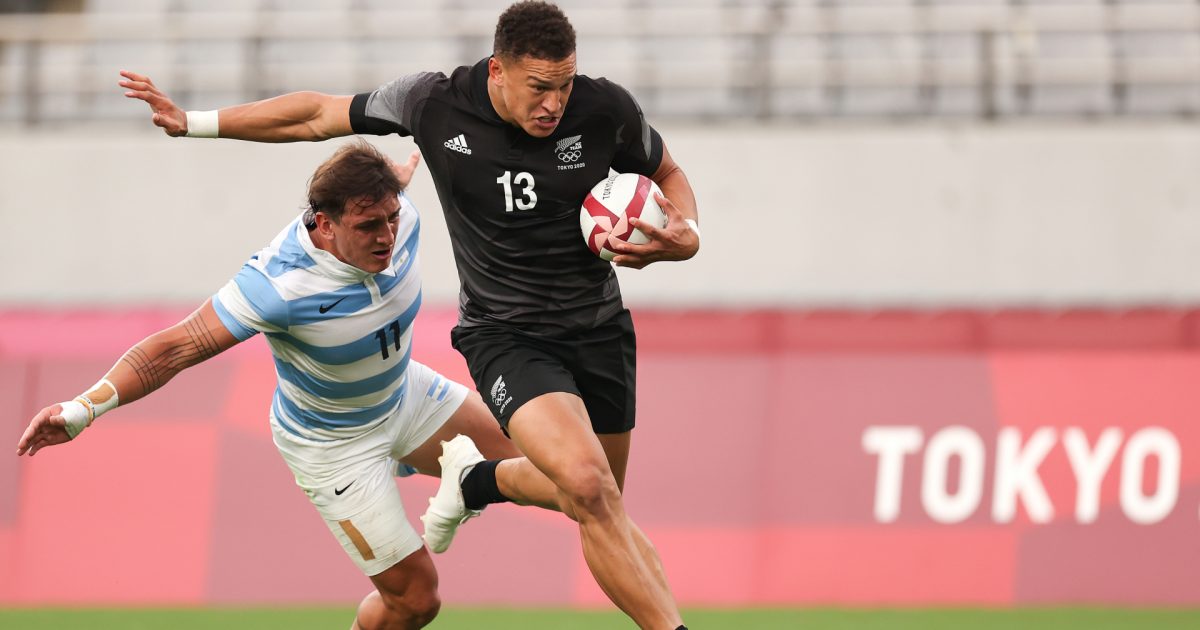Former All Blacks Sevens ace selected in New Zealand’s rugby league squad

Tokyo Olympics silver medallist William Warbrick is one of eight potential debutants in the New Zealand Kiwis’ 21-man squad for the Pacific Championships. Warbrick has been rewarded for another incredible season on the wing for the Melbourne Storm in the NRL.
Warbrick debuted for the All Blacks Sevens in 2019 before later going to the Olympic Games with Team New Zealand in 2019. The New Zealanders collected a silver medal at the postponed Games after going down to Fiji 27-17 in the battle for gold.
Following that venture to the world’s biggest sporting event, Warbrick ended up pursuing an opportunity in rugby league with the Melbourne Storm. But first, Warbrick had to learn the game with one of the Storms’ feeder clubs – Sunshine Coast Falcons – in Queensland.
Coach Craig Bellamy named Warbrick to debut in the opening round of last year’s NRL season, with the winger topping the Storms’ try-scoring tally at the end of that campaign. Warbrick received a Dally M Rookie of the Year nomination on the back of that season.
View this post on Instagram
Warbrick was also named to represent New Zealand A last year, but it’s an even better story this time around with coach Stacey Jones calling the former sevens ace into the national squad. New Zealand will take on Australia and Tonga in the Pacific Championships.
“While we’ve had a number of players ruled out through injury or unavailability, it’s a hugely exciting opportunity having the Kiwis playing at home in front of our fans again,” head coach Stacey Jone said in a statement.
“We’ve still got a solid core of last year’s squad but, the way I see it, it’s a fantastic chance for us to build the group to provide lots of options and depth for following campaigns.”
On the wing for the Storm, Warbrick was on fire during a phenomenal 24-game season. The 26-year-old scored 15 tries, broke 74 tackles, made 16 line breaks, registered three try assists, ran for more than 3920 metres, and completed almost 80 per cent of his tackles.
Warbrick scored doubles against the South Sydney Rabbitohs in round 24 and the Cronulla Sharks during the finals series. The winger once crossed for a hat-trick in a 50-12 demolition of the Brisbane Broncos late in the season.
The Storm went on to make last weekend’s NRL Grand Final at Accor Stadium, with the team going down 14-6 to Nathan Cleary’s Penrith Panthers who have now won four premierships in a row dating back to 2021.
In the international game, another sevens player will be on show for New Zealand’s women’s side with Tyla King earning selection. King is the reigning World Rugby Sevens Player of the Year but recently retired from that sport after winning Paris Olympics gold.
Stacey Waaka has missed out on the New Zealand Kiwi Ferns’ squad after suffering a leg injury. Waaka was named in the Dally M Team of the Year after her first season in league, but good news for rugby fans, the 28-year-old will head back to sevens.
HSBC SVNS Perth takes place on 24-26 January at HBF Park. Plan your ultimate rugby weekend in Western Australia with the help of flexible travel packages including tickets and accommodation. Buy Now or Find Out More.













































How'd he go? Don't remember him but it was late and I didn't find it exciting enough to finish. Did Panthers turning it back inside strat finally pay off? Cleary bombed a certain try at the start kicking on the last then proceeded to run every 5th tackle into the ground after that.
I didnt think the execution was that smart from either side and I put the lack of contestables for Will to capitilize on down to that fact.